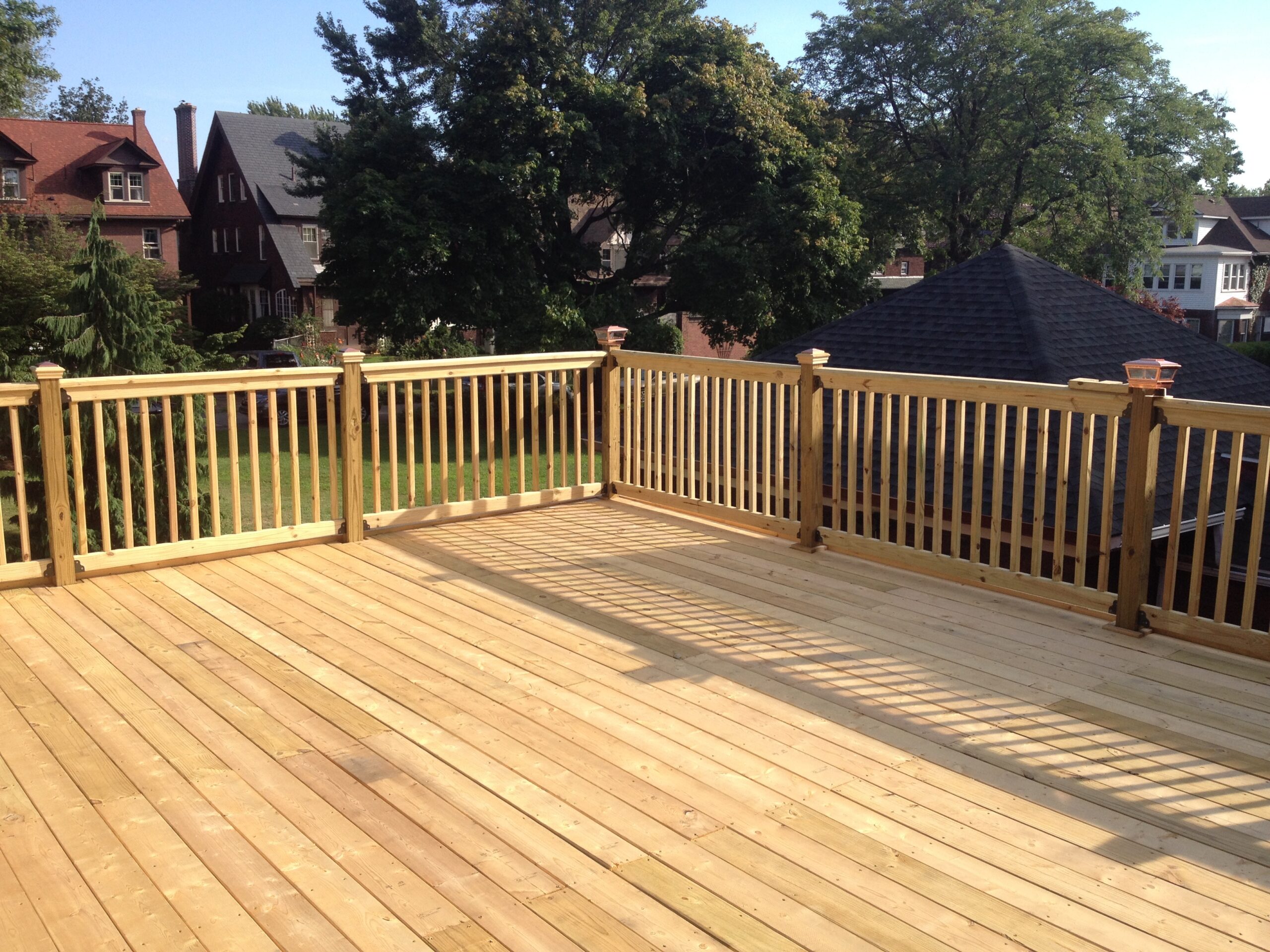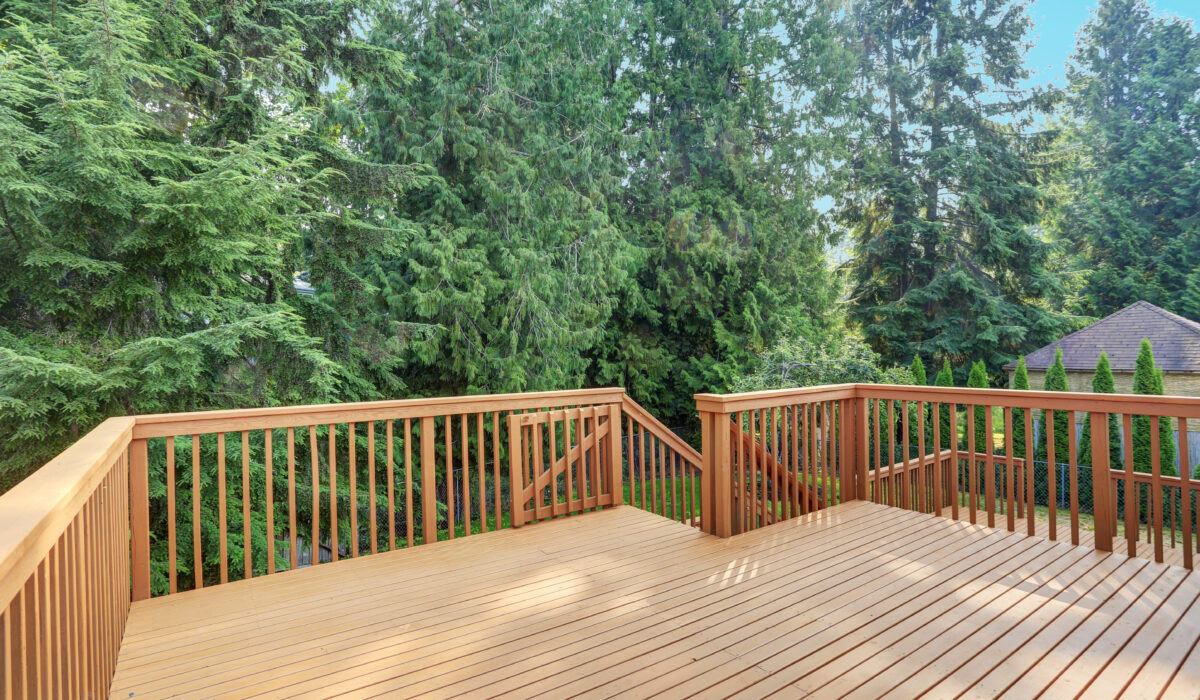When planning a new deck, one of the biggest decisions you’ll face is choosing between composite and wood materials. Both options offer distinct advantages and drawbacks, making the choice highly dependent on your budget, aesthetic preferences, and maintenance expectations. Below, we explore the pros and cons of composite and wood decks to help you determine the best fit for your outdoor space.
Composite Decking
Composite decking is made from a blend of wood fibers and recycled plastic, offering a modern alternative to traditional wood decks.
Pros of Composite Decks:
-
Low Maintenance: Unlike wood, composite decking does not require staining, sealing, or painting. A simple wash with soap and water keeps it looking fresh.
-
Durability: Composite decks resist rot, mold, and insect infestations better than wood. They are also less prone to splintering and cracking.
-
Longevity: Most composite decks come with extended warranties, often lasting 25-50 years, making them a long-term investment.
-
Eco-Friendly: Many composite materials are made from recycled materials, making them a more sustainable choice.
-
Consistent Appearance: Composite decking does not fade, warp, or develop knots, ensuring a uniform look over time.
Cons of Composite Decks:
-
Higher Upfront Cost: Composite decking tends to be more expensive than wood in terms of initial investment.
-
Heat Retention: Some composite materials can get hotter than wood in direct sunlight, making them uncomfortable to walk on barefoot.
-
Less Natural Look: While manufacturers have improved the appearance of composite decking, some homeowners still prefer the authentic beauty of real wood.

Wood Decking
Wood decks have been a popular choice for decades, offering a timeless and natural aesthetic that complements a variety of home styles.
Pros of Wood Decks:
-
Natural Beauty: Many homeowners prefer the rich, organic look and feel of real wood.
-
Lower Initial Cost: Wood decking is generally more affordable upfront than composite materials.
-
Variety of Options: From pressure-treated lumber to exotic hardwoods like Ipe, there are numerous wood types to choose from based on budget and preference.
-
Cooler Surface: Wood does not absorb as much heat as composite decking, making it more comfortable in hot weather.
Cons of Wood Decks:
-
High Maintenance: Wood requires regular staining, sealing, and occasional repairs to prevent rot, warping, and insect damage.
-
Shorter Lifespan: Even with proper maintenance, wood decks typically last 10-30 years, depending on the type of wood used.
-
Susceptibility to Weathering: Wood can crack, warp, and fade over time due to exposure to the elements.
-
Potential for Splinters: Over time, wood decks can develop splinters, which may be a concern for families with children or pets.
Which Decking Option is Right for You?
-
If you prioritize durability, low maintenance, and long-term value, composite decking may be the better choice.
-
If you prefer a natural look, lower initial costs, and don’t mind ongoing maintenance, wood decking remains a classic option.
Ultimately, the best decking material depends on your personal preferences, budget, and willingness to maintain it over time. Whether you opt for composite or wood, a well-designed deck can add beauty and functionality to your outdoor space for years to come.
Need help preparing your deck for winter or considering a new deck installation? Contact Appalachian Deck Company for expert advice and services. We specialize in both wood and composite decking solutions to keep your outdoor space looking and functioning at its best!


